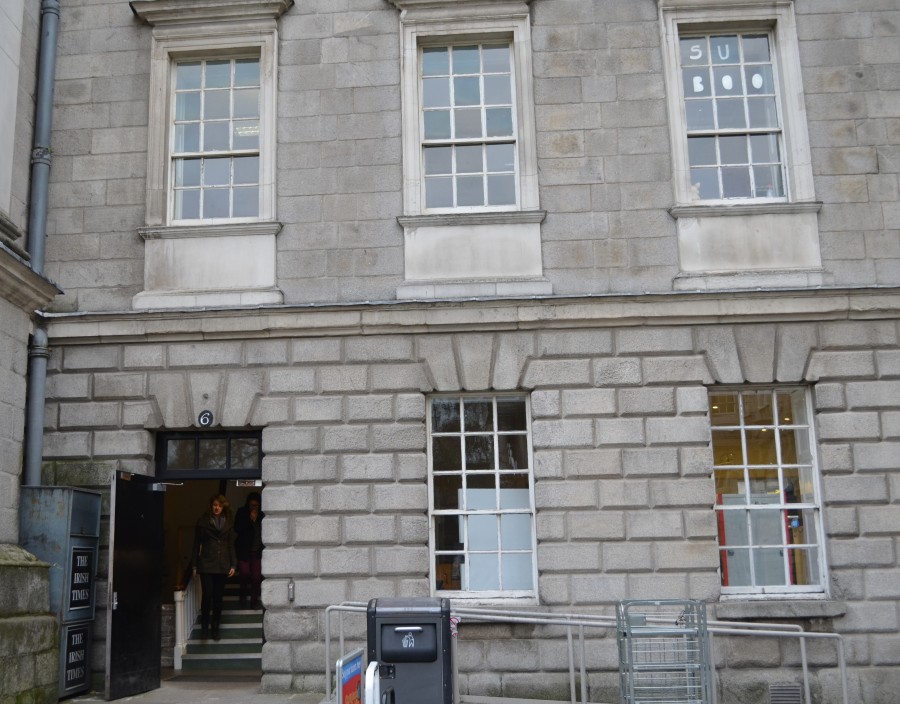Leanna Byrne | Editor
Trinity students will be set to vote on whether or not to accept a new Constitution later in the academic term following a decision at Student Union (SU) Council to put the revised draft to referendum.
The draft constitution was brought to SU Council held last Tuesday by Education Officer Jack Leahy as a result of a constitutional review that concluded in December of last year. Some of the recommendations listed were the separation of The University Times from the Communications Officer role, coupling the brief of the Communications Officer with the Entertainments (Ents) Office, a reform of the Executive and the Oversight Commission (OC), changes to Council procedures and the creation of a Board of Trustees.
Council discussed and voted on a total of 14 recommendations and then brought forward as a motion arising from a discussion item for a referendum that will occur later this year.
The first recommendations to be discussed were recommendations 1 to 3 that suggested changes to the role of the Communications Officer. SU President Tom Lenihan spoke in favour of separating The University Times from the Communications Office, but was not in favour of abolishing the Communications Office from the union. Communications Officer Leanna Byrne agreed by supporting the proposal for editorial independence if the budget allows for it. She also suggested that there should be a provision within the constitution that outlines the relationship between the UT and the SU through the introduction of an oversight board.
However, Finance and Services Officer Tom Leahy did not believe that a separation in the constitution allowed the UT to become independent. He argued that an Editor being paid by the union will still be subject to the current constraints of the Communications Officer. Despite this The University Times Editorship Recommendation was passed by a majority vote.
Recommendations on the abolition of the Communications Office and the creation of an Entertainments and Media Officer were rejected by Council after Ents Officer Seán Reynolds, Ents Officer Elect Finn Murphy, Assistant Campaigns Officer Shauna Watson and Communications Officer Leanna Byrne all spoke against these recommendations.
The rejection of recommendations 1 to 3 discounted the recommendation to introduce new full time staff positions to support the Entertainments and Media Officer.
Recommendation 5 suggested the removal of the following part-time briefs: Finance and Service, Assistant Campaigns, Environment and Ethical Trading, and Technical. The following part-time briefs would be created: Citizenship Officer, Gender Equality Officer and Student Parents Officer. Leahy stated that this recommendation would also amalgamate the campaigns and administrative executives. This group of twenty part time officers would meet every three weeks and individual officers report to individual officers.
Recommendation 5 further proposed that Council would be given the power to delegate any of its authorities to a meeting of this new executive. School Convener for Social Science and Philosophy Cormac flood spoke against this as he believed it would be anti-representative. Welfare Officer Stephen Garry also proposed an amendment to this recommendation for it to read that “The executive shall exercise overall discretion in arranging these meetings according to compatibility of the brief” and not the President as it allows for a greater coloration and a more exact assessment of strengths and weaknesses at the start of the year.
Both amendments and recommendations were approved by Council.
Other recommendations brought forward to include in the draft constitution was the creation of an oversight committee for The University Times to act as an independent mediator between the UT and the SU and a threshold of 60 per cent for the passing of referendums on long-term policy.
The Education Officer has now been mandated to draft a constitutional proposal that will be put to the Executive in the next coming weeks. A decision as to when the referendum will take place has not been decided.






